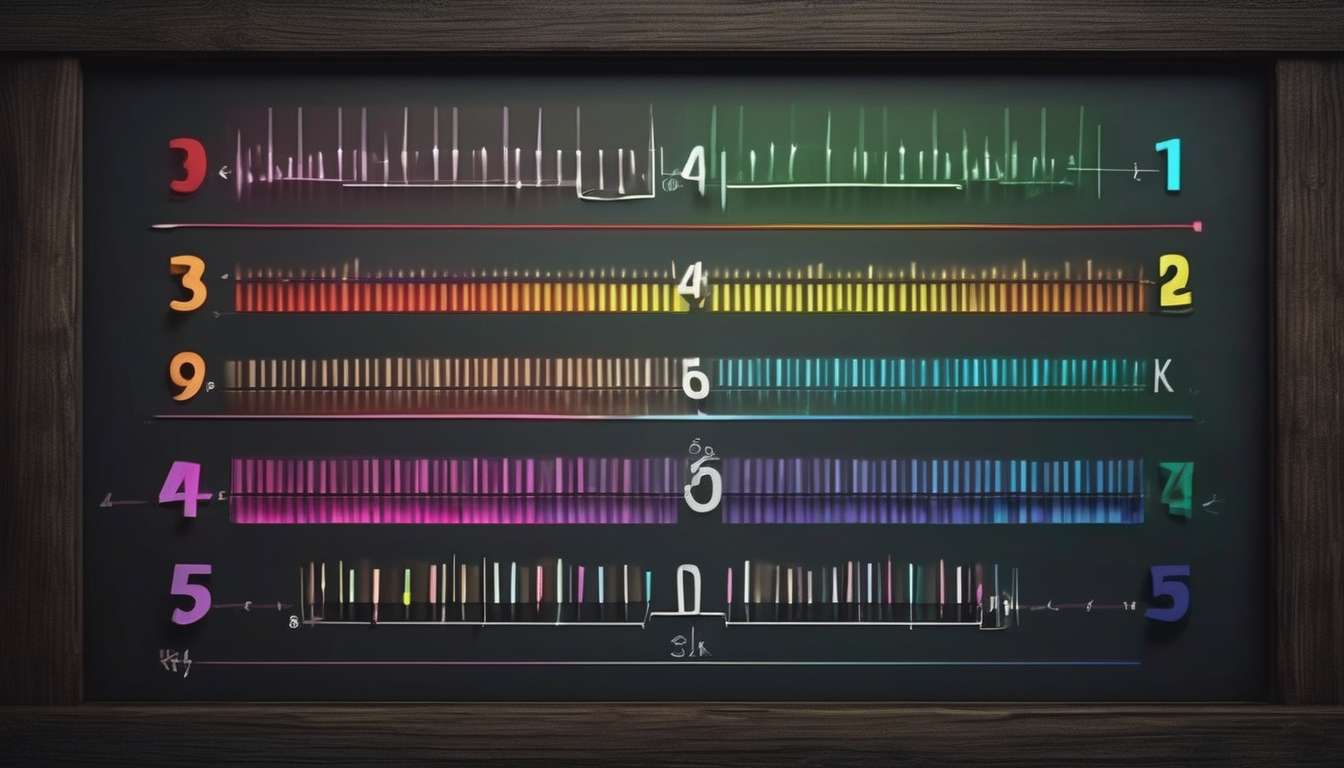As seasoned odds readers, we have spent countless hours honing our skills, transforming what once seemed like a jumble of numbers into a coherent narrative. Our journey has taught us that reading odds is not just about understanding statistics; it’s about developing a set of disciplined habits that allow us to see beyond the surface.
In this article, we aim to share the nine essential habits that have become second nature to us and have significantly enhanced our ability to interpret odds with precision. From meticulous research practices to maintaining an adaptable mindset, these habits are the cornerstone of our success in navigating the complex world of odds.
Whether you are just beginning your journey or looking to refine your skills, these insights offer a roadmap to becoming a more proficient odds reader. Together, let’s delve into the practices that elevate our understanding and sharpen our analytical prowess.
Here are the key habits:
-
Meticulous Research Practices
- Stay updated with the latest data and trends.
- Analyze historical data to identify patterns.
-
Disciplined Approach
- Develop a systematic method for evaluating odds.
- Avoid emotional decision-making.
-
Adaptable Mindset
- Be open to new information and willing to adjust strategies.
- Embrace change as part of the learning process.
-
Critical Thinking
- Question assumptions and test hypotheses.
- Look beyond numbers to understand the context.
-
Attention to Detail
- Scrutinize every piece of information.
- Ensure accuracy in calculations and interpretations.
-
Continuous Learning
- Engage with educational resources and expert insights.
- Stay curious and eager to improve your skills.
-
Effective Communication
- Share findings clearly and concisely.
- Collaborate with others to enhance understanding.
-
Time Management
- Allocate time wisely for research and analysis.
- Prioritize tasks to focus on high-impact areas.
-
Risk Management
- Assess potential risks and rewards.
- Develop strategies to mitigate adverse outcomes.
By incorporating these habits into your routine, you can elevate your odds-reading capabilities and achieve greater success in this complex field.
Effective Research Strategies
To develop effective research strategies, we should focus on identifying reliable sources and analyzing data critically. As odds readers, we’re part of a community that thrives on accuracy and precision.
1. Identifying Reliable Sources:
- Our first step is to ensure that our research is rooted in credible sources.
- This means cross-referencing information across multiple platforms.
- Prioritize well-reviewed studies or reports.
By doing so, we solidify our foundation for making informed evaluations.
2. Critical Data Analysis:
Analysis plays a crucial role in our journey. We must:
- Examine data with a keen eye.
- Question assumptions.
- Look for patterns that others might overlook.
This analytical approach not only sharpens our skills but also strengthens our collective understanding. We’re in this together, supporting one another as we navigate complex information.
3. Evaluation as Our Compass:
Evaluation guides us in:
- Weighing evidence.
- Determining validity.
By sharing insights and perspectives within our group, we cultivate a supportive environment where everyone’s research skills are enhanced. Together, we build a stronger, more informed community.
Structured Decision-Making
In structured decision-making, we prioritize clear criteria and logical frameworks to enhance our odds-reading efficiency. By establishing these foundations, we create a sense of unity and shared purpose in our pursuit of understanding.
Research Phase:
- Start with thorough research.
- Ensure that sources are reliable and comprehensive.
- Gather necessary data to form the backbone of our analysis.
Analysis Phase:
- Delve into detailed analysis after collecting information.
- Examine patterns and trends that might not be immediately apparent.
- Connect the dots to build a coherent picture of the situation.
Evaluation Process:
- Assess findings against pre-defined criteria.
- Improve decision-making through a systematic approach.
- Strengthen bonds as a community of odds readers.
Together, we refine our skills, making informed decisions that reflect our collective expertise and dedication.
Flexibility in Analysis
In our analytical journey, we must embrace adaptability to navigate the ever-changing landscape of odds reading. As a community of enthusiastic odds readers, we know that flexibility is crucial in our research, analysis, and evaluation processes.
When we approach a new set of odds, we can’t rely solely on rigid methods. Instead, we adapt our strategies to align with the latest trends and data. This flexibility allows us to respond swiftly to shifts in the betting market.
Our collective knowledge grows as we share insights and adapt our approaches, fostering a sense of belonging within our community. By staying open-minded, we’re better equipped to refine our analysis and make more informed decisions.
Flexibility also means:
- Re-evaluating our assumptions
- Acknowledging when new evidence necessitates a change in direction
Through ongoing research and collaborative analysis, we cultivate a dynamic environment that encourages innovation and ensures we’re always ready to tackle whatever challenges the world of odds presents.
Critical Evaluation Skills
Mastering critical evaluation skills empowers us to discern valuable insights from the vast sea of data and odds. By doing so, we become part of a community of informed decision-makers, relying on solid research and meticulous analysis.
Delving into the intricacies of odds reading means not just skimming the surface but diving deep, examining patterns and trends that others might overlook.
Research as the backbone of evaluation:
- We sift through mountains of information.
- Separate the noise from the signal.
- Make connections and predictions that are both logical and insightful.
It’s not about luck; it’s about crafting informed judgments that align with our community’s standards of excellence.
Benefits of critical evaluation:
- Connects us by allowing the sharing of insights and strategies.
- Enriches our collective understanding.
- Enhances our ability to make astute decisions.
- Fosters a sense of belonging among those who value precision and accuracy in odds reading.
By honing these skills, we strengthen our community and our personal mastery of critical evaluation.
Detail-Oriented Approach
Every detail counts when we immerse ourselves in the art of odds reading, as each nuance can reveal critical insights others might miss. It’s our shared commitment to a detail-oriented approach that sets us apart, creating a sense of unity among those who appreciate the intricacies of this craft.
We delve into research with meticulous care, knowing that the smallest piece of information can shift the entire landscape of our analysis.
Our evaluation process thrives on precision. We examine every angle, ensuring no stone is left unturned. This thoroughness in analysis allows us to identify patterns and trends that others might overlook.
By paying attention to detail, we not only enhance our understanding but also strengthen our connections with like-minded individuals who value this approach.
Together, we build a community that celebrates the art of careful evaluation. We find camaraderie in our shared pursuit of excellence, knowing that every detail we uncover brings us closer to mastering the odds.
Commitment to Learning
Our dedication to continuous learning fuels our ability to stay ahead in the ever-evolving world of odds reading. We immerse ourselves in research, diving deep into the latest trends and developments.
It’s not just about gathering information; it’s about understanding and applying it. As a community of odds readers, we thrive on shared insights and experiences, knowing that each piece of knowledge strengthens our collective expertise.
Analysis plays a critical role in our learning journey. We:
- Dissect past performances
- Scrutinize patterns
- Identify anomalies
By doing so, we enhance our predictive skills, making informed decisions based on comprehensive evaluation. We understand that every piece of data can tell a story, and we’re eager to uncover it.
Evaluation doesn’t end with numbers. We constantly assess our strategies, adapting to new information, and refining our techniques.
This commitment to learning connects us, as we share a common goal: to excel and grow together in the art of odds reading.
Clear Communication Practices
Effective communication is our lifeline, ensuring we articulate insights clearly and collaborate seamlessly in the odds-reading community. We must express our research findings and analytical insights in a way that resonates with our peers.
By doing so, we create a shared understanding that:
- Strengthens our collective evaluation skills
- Fosters a sense of belonging
In our community, every member’s input is valuable. When we share our analysis, we open doors to:
- Deeper discussions
- Innovative approaches
We understand the importance of precise language, which helps us:
- Avoid misunderstandings
- Ensure our evaluations are accurately interpreted
This clarity is crucial when presenting research results that guide decision-making processes.
Moreover, we actively listen to others, embracing diverse perspectives. This practice:
- Enhances our ability to refine our own analyses
- Strengthens our community bonds
By prioritizing clear communication, we’re not just exchanging information; we’re building a network of trust and support that empowers us all in the world of odds reading.
Strategic Time Allocation
Effectively managing our time is crucial in ensuring we can thoroughly analyze odds and make informed decisions. In our community of odds readers, we recognize the importance of dedicating specific time slots to various tasks like research, analysis, and evaluation. This structured approach allows us to dive deep into each aspect without feeling overwhelmed.
Research Phase:
- We gather valuable insights and data that form the foundation of our analysis.
- This is where we collect statistics, trends, and relevant information.
Analysis Phase:
- By dedicating time to analysis, we interpret the data, identify patterns, and assess potential outcomes.
- In this phase, our analytical skills shine as we connect the dots.
Evaluation Phase:
- We review our findings and refine our strategies.
By strategically allocating our time, we enhance our ability to make accurate predictions and feel a sense of belonging within our odds-reading community.
What are the common misconceptions about odds reading among beginners?
Common Misconceptions About Odds Reading
When it comes to beginners, misconceptions often revolve around two main ideas:
-
Complexity: Many people believe that understanding odds requires advanced math skills.
-
Luck: There’s a common notion that odds reading is purely about chance.
Reality of Odds Reading
In reality, odds reading involves:
-
Analyzing Probabilities: It’s about understanding the likelihood of different outcomes.
-
Making Informed Decisions: Using data and strategies to make calculated choices.
Overcoming Misconceptions
Beginners can build a strong foundation in odds reading by:
-
Focusing on Learning Strategies: Invest time in understanding the basic concepts and strategies involved.
-
Staying Disciplined: Consistent practice and discipline can help in mastering odds reading.
By addressing these misconceptions, newcomers can develop a solid understanding and become successful in odds reading.
How can technology or software tools enhance the odds reading process?
Technology and software tools can greatly enhance the odds reading process. They provide:
- Real-time updates
- Accurate calculations
- Customizable features
These attributes make analyzing odds more efficient.
Benefits of leveraging these tools include:
- Streamlining decision-making
- Staying ahead of the game
By harnessing the power of technology, we can elevate our odds reading skills and gain a competitive edge in various fields.
What are some historical examples where odds reading significantly impacted outcomes?
Historical Examples of Odds Reading
Historical examples abound where odds reading greatly influenced outcomes. Understanding these instances provides valuable insights into the power and significance of this practice in shaping the course of events.
Military Strategy
- Sun Tzu: The ancient Chinese military strategist emphasized the importance of assessing odds to win battles. His work, The Art of War, outlines methods for evaluating the strengths and weaknesses of opponents, enabling strategic advantages.
Financial Investment
- Warren Buffett: Known as one of the most successful investors, Buffett leverages probabilities to make informed financial decisions. His methodology involves a deep analysis of market trends and company performance, allowing him to assess the odds of investment success.
Significance and Impact
Understanding historical instances where odds played a pivotal role can illuminate how strategic decision-making, based on probability assessment, can significantly influence outcomes in various fields.
Conclusion
In conclusion, mastering the art of reading odds requires dedication and a set of proven habits. By honing effective research strategies, structured decision-making skills, and critical evaluation abilities, you can navigate the world of probabilities with confidence.
Key Habits for Mastering Odds Reading:
-
Effective Research Strategies: Gather information from reliable sources and stay updated on the latest trends.
-
Structured Decision-Making Skills: Develop a systematic approach to evaluate and choose options.
-
Critical Evaluation Abilities: Analyze information critically to discern patterns and insights.
Stay flexible in your analysis, detail-oriented in your approach, and committed to continuous learning.
Additional Tips:
-
Communicate clearly to ensure your findings and decisions are understood by others.
-
Allocate your time strategically to focus on the most impactful areas of your analysis.
With practice and persistence, you’ll become a seasoned odds reader in no time.




